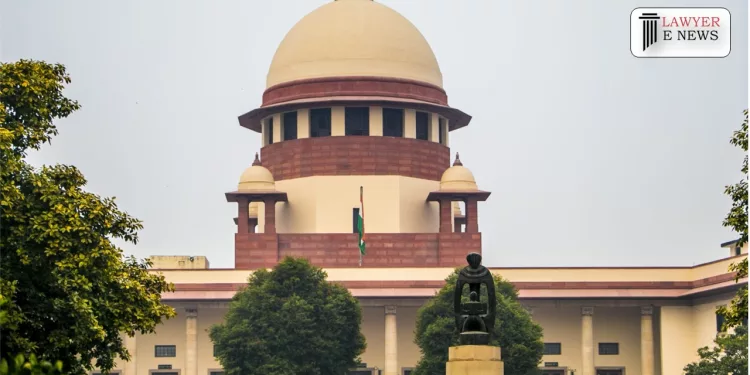High Court Ought Not To Have Entertained The Habeas Corpus Petition Under Article 226 Of The Constitution In Child Custody Matters: Supreme Court Quashes Order

In a significant ruling on the limits of habeas corpus petitions in child custody cases, the Supreme Court today set aside a Punjab and Haryana High Court decision that transferred custody of a minor from the maternal grandmother to the biological father.
Legal Background and High Court Decision:
The case stemmed from a habeas corpus petition filed under Article 226/227 of the Constitution by the biological father, asserting that the maternal grandmother held the child in wrongful custody. The High Court had favored the father, stating that the child’s welfare would be best served by living with him, granting the grandmother visiting rights.
Facts and Issues Arising:
The appeal arose after the mother of the child passed away under suspicious circumstances, with the father initially relinquishing custody due to personal distress. Despite an affidavit designating the grandmother as guardian, the father later sought custody through various legal challenges, eventually leading to the High Court’s habeas corpus decision.
Supreme Court Assessment: The Supreme Court, led by Justices B.R. Gavai and Sandeep Mehta, criticized the High Court’s approach, noting that habeas corpus is not the appropriate legal remedy for child custody disputes that are not founded on illegal detention. The judgment emphasized that matters of child custody require detailed inquiry into the child’s welfare, something that the summary nature of habeas corpus proceedings cannot adequately address.
Key Points from the Judgment:
Legal Misapplication: The Court found that the High Court had erred by entertaining a habeas corpus petition for the custody dispute, where the grandmother’s custody was not illegal.
Child’s Welfare: The judgment highlighted that shifting the child from the grandmother’s care could cause psychological harm, advocating for a careful consideration of the child’s psychological welfare.
Proper Legal Framework: The Supreme Court directed that future custody proceedings should be conducted under the Guardians and Wards Act, ensuring a thorough evaluation of what serves the best interest of the child.
Decision: The Supreme Court allowed the appeal, quashed the High Court’s judgment, and dismissed the habeas corpus petition. It also specified that any future custody proceedings should be initiated under the Guardians and Wards Act, with provisions for expedited visitation rights.
Date of Decision: May 3, 2024.
Nirmala vs. Kulwant Singh & Ors.






